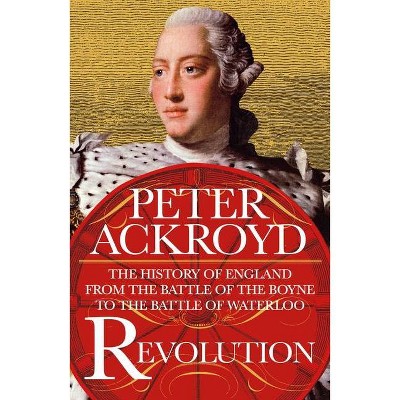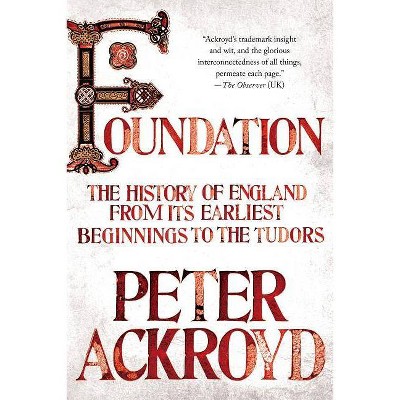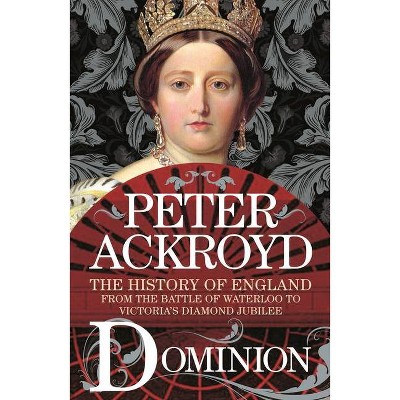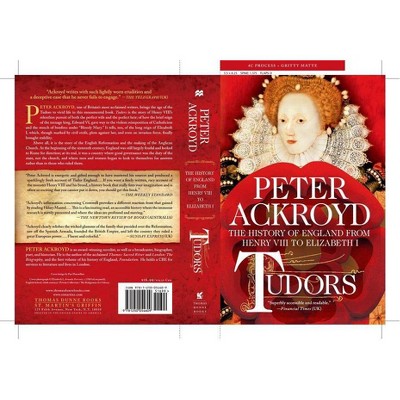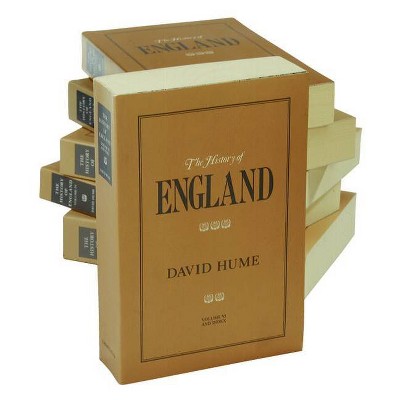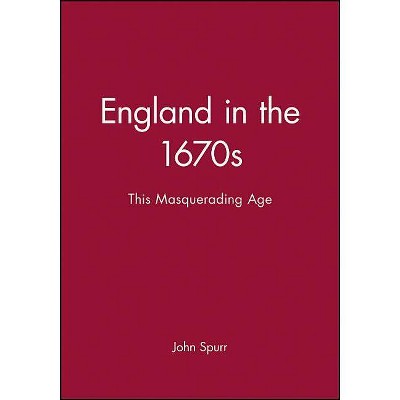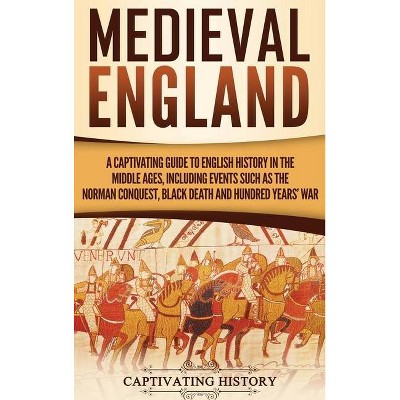Rebellion: The History of England from James I to the Glorious Revolution - (History of England, 3) by Peter Ackroyd (Paperback)
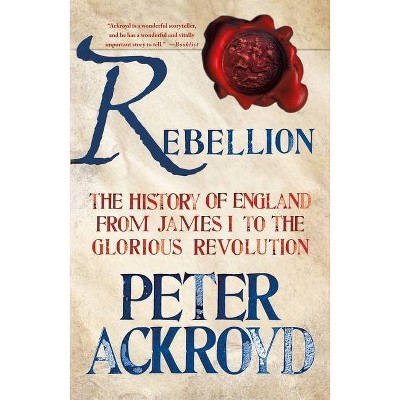
Similar Products
Products of same category from the store
AllProduct info
<p/><br></br><p><b> About the Book </b></p></br></br>The depth and scope of Ackroyd's account is impressive, and it is as accessible as it is rich. --<i>Publishers Weekly</i><p/><br></br><p><b> Book Synopsis </b></p></br></br><p>Peter Ackroyd has been praised as one of the greatest living chroniclers of Britain and its people. In <i>Rebellion, </i>he continues his dazzling account of the history of England, beginning with the progress south of the Scottish king, James VI, who on the death of Elizabeth I became the first Stuart king of England, and ending with the deposition and flight into exile of his grandson, James II. <p/>The Stuart monarchy brought together the two nations of England and Scotland into one realm, albeit a realm still marked by political divisions that echo to this day. More importantly, perhaps, the Stuart era was marked by the cruel depredations of civil war, and the killing of a king. Shrewd and opinionated, James I was eloquent on matters as diverse as theology, witchcraft, and the abuses of tobacco, but his attitude to the English parliament sowed the seeds of the division that would split the country during the reign of his hapless heir, Charles I. Ackroyd offers a brilliant, warts-and-all portrayal of Charles's nemesis, Oliver Cromwell, Parliament's great military leader and England's only dictator, who began his career as a political liberator but ended it as much of a despot as that man of blood, the king he executed. <p/>England's turbulent seventeenth century is vividly laid out before us, but so too is the cultural and social life of the period, notable for its extraordinarily rich literature, including Shakespeare's late masterpieces, Jacobean tragedy, the poetry of John Donne and Milton and Thomas Hobbes's great philosophical treatise, <i>Leviathan</i>. In addition to its account of England's royalty, <i>Rebellion </i>also gives us a very real sense of the lives of ordinary English men and women, lived out against a backdrop of constant disruption and uncertainty.</p><p/><br></br><p><b> Review Quotes </b></p></br></br><br><p>"Splendid . . . Ackroyd keeps things moving briskly along by alternating between weighty matters of state and vignettes of everyday life. An accomplished novelist, he has an eye for the revelatory digression." --<i>The New York Times Book Review</i> <p/>"An exhilarating experience. Readers will come away from this book with an appreciation of how and why the cataclysmic events of seventeenth century England shaped world history for the next two centuries." --<i>NPR.org</i> <p/>"Appropriately detailed, beautifully written story of the Stuarts' rise and fall - will leave readers clamoring for the further adventures awaiting England in the 18th century." --<i>Kirkus (starred review)</i> <p/>"Ackroyd is a wonderful storyteller, and he has a wonderful and vitally important story to tell... providing excellent insights into the character and motivations of several of the prime movers of events... He eloquently describes the development of literature, the ongoing religious controversies, and the evolving political sympathies and their effects on the lives and opinions of ordinary citizens." --<i>Booklist (starred review)</i> <p/>"The depth and scope of Ackroyd's account is impressive, and it is as accessible as it is rich." --<i>Publishers Weekly</i> <p/>"In the same vein as the previous two volumes, <i>Rebellion</i> does more than lay out the facts of history. Spliced between the chapters that move the chronological history forward are vignettes on daily life in 17th-century England, covering the theatres, literature, politics and economics, and the emerging popular press, as well as contemporary analysis of historical events. This is a fascinating look at life in England during tumultuous times." --<i>Shelf Awareness</i> <p/>"Peter Ackroyd is energetic and gifted enough to have mastered his sources and produced a sparklingly fresh account of Tudor England. . . . Ackroyd has a wonderful eye for the telling detail, cameos that stick in the mind." --<i>The Weekly Standard on Tudors</i> <p/>"Peter Ackroyd's love of his subject shines through every page. This is a thrilling story that will delight readers interested in this period." --<i>San Francisco Book Review on Tudors</i> <p/>"Ackroyd writes with such lightly worn erudition and a deceptive ease that he never fails to engage." --<i>The Telegraph (UK) on Tudors</i> <p/>"Superbly accessible and readable." --<i>Financial Times (UK) on Tudors</i> <p/>"Relaxed, unpretentious, and accessible." --<i>The New York Times Book Review on Foundation</i> <p/>"Ackroyd's trademark insight and wit, and the glorious interconnectedness of all things, permeate each page." --<i>Observer (UK) on Foundation</i> <p/>"Ackroyd brings delightful but revealing details of the lives of the people from the past into the present." --<i>Sunday Express (UK) on Foundation</i> <p/>"An extraordinary book . . . Peter Ackroyd is arguably the most talented and prolific writer working in Britain today." --<i>Daily Express (UK) on Foundation</i></p><br><p/><br></br><p><b> About the Author </b></p></br></br>PETER ACKROYD is an award-winning novelist, as well as a broadcaster, biographer, poet, and historian. He is the author of the acclaimed <i>Thames: Sacred River</i>, <i>London: The Biography</i>, and the first and second volumes of his history of England, <i> Foundation</i> and <i>Tudors</i>. He holds a CBE for services to literature and lives in London
Price History
Price Archive shows prices from various stores, lets you see history and find the cheapest. There is no actual sale on the website. For all support, inquiry and suggestion messagescommunication@pricearchive.us
